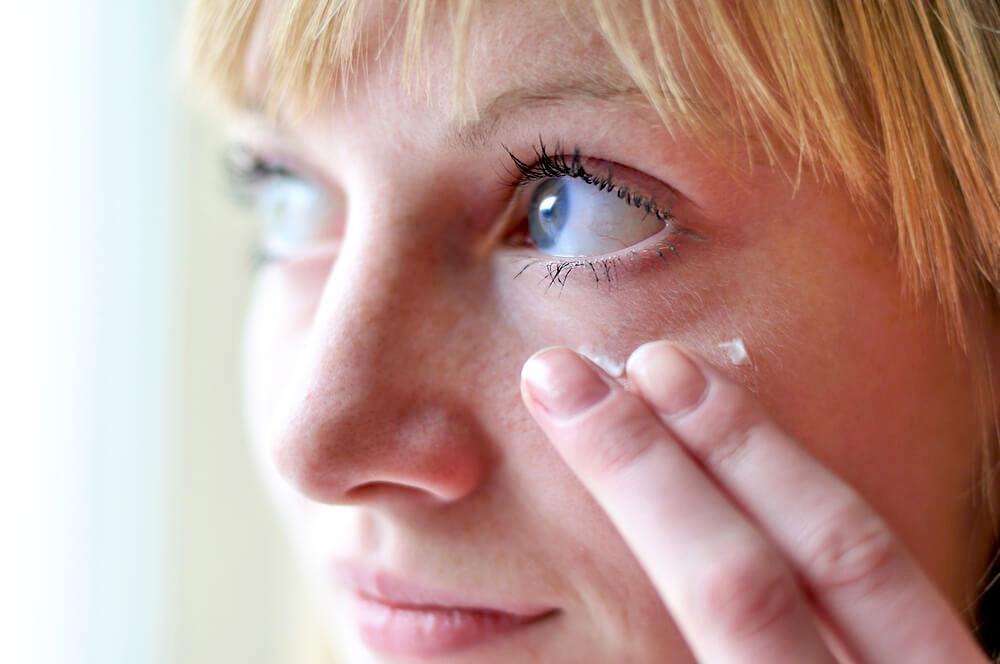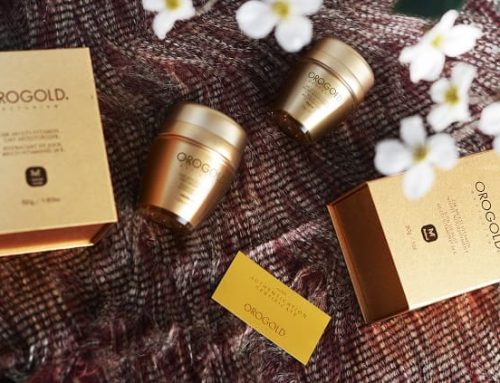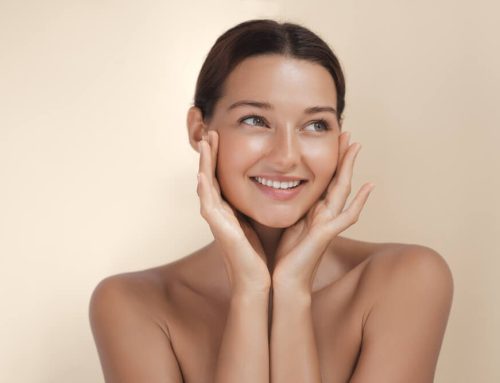Vitamins have long been known to be an important factor in skin health. They’re rich in antioxidants to protect against photo damage, they can keep our skin strong, help to alleviate skin conditions, diminish wrinkles and dark spots, and of course, help to keep acne away.
Now that it’s up to you to keep track of the best vitamins for your skin, we figure you might want a little review. Here are some of the best vitamins for keeping your skin looking its best.
Vitamin A
When Dr. Oz speaks, people listen. So when the Great Oz happened to mention that the only treatment capable of actually eliminating existing wrinkles was vitamin A retinol, the lives of many viewers would never be the same.
The anti-aging benefits of vitamin A became knows when in the late 1960’s, a University of Pennsylvania dermatologist began testing a Vitamin A derivative called tretinoin on prisoners as a treatment for acne. Imagine how delighted the prisoners were to find their skin was not only acne-free, but a little younger looking as well. By 1973, Klingman had patented the formula for Retin-A and the cosmetic industry soon took notice. Leslie Baumann, MD says,”Retinoids prevent wrinkles, and they are the only topical product that gets rid of the wrinkles you already have.”
Doc Oz concurs. Not only do retinoids minimize the appearance of wrinkles, they also bolster the elasticity of skin. By slowing down the breakdown of collagen and stimulating surface cells to turn over rapidly, retinoids allow for new cell growth to rejuvenate older skin, and penetrate to thicken the skin’s deepest layer, where wrinkles begin. Retinoids even out skin tone by sloughing of brown spots and curbing melanin production, and have been proven effective on warts, wrinkles, psoriasis, and blotchiness caused by environmental exposure and aging skin.
Of course, there are the drawbacks. It seems that vitamin A is so effective at turning over cells, that it sometimes does too good of a job. Make sure to consult a skin care professional if you notice signs of peeling and redness when using retinol. He or she may be able to recommend a treatment with a lower dose of retinoids that is gentler on your skin.
Vitamin B (Biotin)
Now normally, we don’t advise playing favorites, but when it comes to the B Vitamin, it might be hard not to. Biotin, or B7, is also known as the “Beauty Vitamin” which makes it pretty much a hands-down favorite in the B Vitamin family. Standing out above its seven brothers and sisters, biotin is the single most important nutrient for skin. It forms the basis of all nail, skin, and hair cells, and even a mild deficiency can lead to hair loss or dermatitis.
Luckily, there are many yummy ways to get biotin. It’s in foods like eggs, oatmeal, rice and bananas, and your body even manufactures some of it all by itself; no wonder you’re so beautiful!
However, recently there is greater attention focused on topical B Vitamin treatments. Newly formulated creams and gels infused with these vitamins can give skin an almost immediate glow of health, improved tone, and increased hydration. Niacin, one of the B siblings, helps skin retain moisture, so products with this nutrient can keep your complexion looking plumper and younger in less than a week. It also has anti-inflammatory properties to soothe irritated and dry skin, and works in higher concentrations as a lightening agent to even out skin tone.
A study presented at the 2003 Annual Meeting of the American Academy of Dermatology showed topical forms of vitamin B as having the ability to significantly slow down aging in human skin.
Vitamin C
While it may not do much for the common cold, vitamin C is great for your skin. In fact, the English pirates sucked on limes to keep their skin intact when scurvy entered the scene, hence the name “limey” (a semi-derogatory term now commonly used to describe Englishmen). Vitamin C is present at high levels in the dermis (inner layer of skin), as well as the epidermis (outer layer). It’s known for its antioxidant, free-radical quenching properties and for its role in the production of collagen to keep skin firm, which is why it is so often featured in anti-aging skin care products.
Taking vitamin C orally can help to intensify the effectiveness of sunscreen by decreasing cell damage from UV rays and boost the skin’s natural healing process. It can also help fend off aging because of its ability to stimulate collagen, helping to heal damaged skin and reduce the appearance of wrinkles.
Because vitamin C is prevalent in so many of the foods we eat and in dietary supplements, you should easily be hitting the target 1,000 milligrams a day; however, if you’re finding yourself in the same boat as the pirates, you may want to:
- eat more citrus-based fruits, like oranges or limes
- consume other plant-based C-sources, like broccoli, strawberries, and spinach
- drink plenty of O.J.
- take Vitamin C supplements, as suggested by a physician
- use Vitamin C enhanced anti-aging skin products for wrinkles, dryness, redness, and age spots
Vitamin D
Despite the euphemisms you may have heard or seen from the baser elements about vitamin D, it is still considered one of the best ingredients for skin. The most prevalent source of it is sunlight. When sun is absorbed by the skin, cholesterol converts to vitamin D, which is delivered to your kidney and liver and transported throughout the body to make healthy cells, including skin cells. In this way, vitamin D plays a large role in toning skin, and may help to treat psoriasis.
Calcitriol is a synthetic version of vitamin D, often used as a topical treatment for psoriasis. A study published in the Journals of Drugs and Dermatology found that calcitriol reduced skin inflammation and irritation associated with psoriasis without many of the adverse side effects.According to the Linus Paul Institute at Oregon State University, you should be getting a 600 IU daily dose of D, and more if you’re over 70 or pregnant.
Looking to up your intake? Here are some ways you can get the D:
- Get ten minutes of sun per day, but check with your doctor first, especially if you have a high risk of skin cancer
- Eat vitamin D fortified food, like orange juice, cereal, and yogurt
- Eat foods that contain vitamin D naturally, such as tuna, salmon, and cod
Vitamin E
Antioxidants are always better in pairs, and vitamin E makes a terrific sidekick. It combines well with vitamins C and A to protect against sun damage, by absorbing harmful UV rays to help prevent dark spots and wrinkles.
The body usually produces vitamin E through sebum, the oil found in the pores of skin. When properly balanced, sebum keeps the skin conditioned and prevents dryness. Vitamin E can be helpful if skin is particularly dry due to a shortage of sebum, and also helps to treat skin inflammation.
Although vitamin E is available in many skin care products (there’s tons of it in shea butter), there is a chance that its effects can be minimized by exposure to the sun. If you’re a sun worshipper, you may want to up your intake by:
- Eating more seeds and nuts, like hazelnuts, almonds, and sunflower seeds
- Taking a multivitamin or Vitamin D supplement
- Using topical products with both vitamin E and C which are more effective in photo protection than those containing only one of the two.
Vitamin K
Definitely an underrated vitamin, vitamin K may not get as much of the limelight as its nutritional sisters and brothers, but it is no less essential. Vitamin K is crucial in aiding the bodily process of blood clotting to help it heal bruises, wounds, and scars. It is most commonly used in skincare to treat:
- Spider Veins
- Scars
- Stretch marks
- Dark spots
- Stubborn under eye circles
Vitamin K is often found in topical creams, and is commonly used by doctors to treat individuals who have just undergone surgery to help reduce bruising and swelling; however research about the effects of the K vitamin on skin is less comprehensive than that for vitamins E and C.
Can you name three foods that contain vitamin K? If you can’t you may not be getting your recommended intake of 90 to 120 ug per day. Give up? Here are some vitamin K rich foods:
- Spinach
- Kale
- Lettuce
- Green beans
- Cabbage
Zinc (for Acne)
Move over, Vitamin A; there’s a new acne master in town. While vitamin (A is for acne) is still probably the most commonly prescribed vitamin for reducing pimples, and vitamins C, D, and E are no slouches when it comes to fighting breakouts, zinc is the one with the firmest scientific backing attesting to its effectiveness against acne.
The main objective of zinc’s acne game is to tone down existing pimples and prevent new ones from popping up, but its biggest claim to fame is its ability to work miracles on the immune system. Zinc prevents an overactive immune system from releasing inflammatory chemicals that cause acne, and it can help boost an immune system that is not performing at its optimum level.
When you realize that most of the Western population is zinc-deficient, and that a good chunk of that population also suffers from acne, there seems to be a certain amount of logic behind the acne-zinc-link, at least enough of one to warrant investigation; however, it is important that you do your homework before you begin a zinc regimen. Zinc piliconate and zinc methionine are the best-absorbed forms of acne, while the more commonly used zinc oxide version is relatively ineffective, and even cause people to give up on zinc entirely.
Ready for some scientific proof? A study reports that with the right zinc supplement, you could see a reduction of acne of around 33%, and that was using zinc sulphate, not even one of the most effective zinc supplements.
Essential Fatty Acids
Back in 1929, when we were a little less concerned with animal rights, George and Mildred Burr experimented with fatty acids by feeding rats non-fat diets. These fat-free rats developed skin abnormalities, increased water loss in their skin, impaired reproduction, and stunted growth. The Burrs found that by introducing oils rich in polyunsaturated fats, like corn and linseed oil, they could completely reverse the skin defects in rats, while saturated fatty acids like butter, had no effect whatsoever. In addition, a deficiency of essential fatty acids in humans typically manifests itself as dermatitis (itchy, dry skin) and increased loss of water. This got some more scientists curious about the effect of topical and dietary EFA supplementation on skin.
EFAs are polyunsaturated fatty acids (PUFAs) that our bodies cannot produce and can only obtained through diet.They play important roles in the dermal and epidermal skin layers, and have a major effect on skin’s appearance. The two classes of EFAs are omega-6 and omega-3, and they are also effective in protecting skin from photo-aging and reducing inflammation.
Got fatty acids? Unfortunately not. Since our bodies don’t manufacture them, we have to seek them from outside sources. That means you’re going to have to up your intake. The foods with the highest amount of omega fatty acids are anchovies, salmon (wild has more than farmed), tuna, bluefish, mackerel, sardines, herring, lake trout, and sturgeon. Hope you like seafood! There are supplement too, but food is a better source. Try to eat fish high in fatty acids two to three times a week, and watch your skin glow!
Got any advice for us on skin vitamins, or vitamins, or just skin? Let us know! We love to get your input!









Leave A Comment